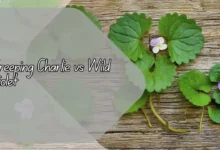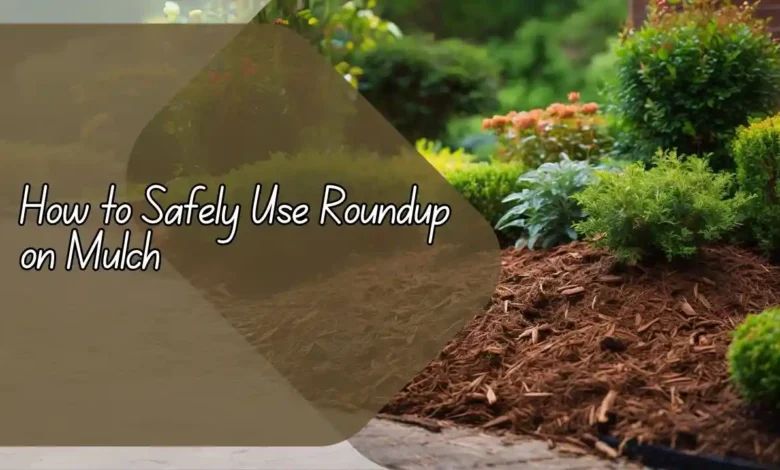
How to Safely Use Roundup on Mulch: Tips and Precautions
In this article, we will discuss the proper way to use Roundup on mulch in your garden. We will provide tips and precautions to ensure the safe and effective application of this herbicide, helping you maintain a healthy and beautiful garden.
What is Roundup and Why Use It on Mulch?
Roundup is a popular herbicide used to control weeds in gardens and landscapes. When applied correctly, Roundup can effectively eliminate unwanted plants without harming your desired vegetation.
Using Roundup on mulch is a common practice to prevent weeds from growing in this area and maintain a tidy garden. Before using Roundup on mulch, it is essential to follow proper safety precautions to protect yourself, your plants, and the environment.
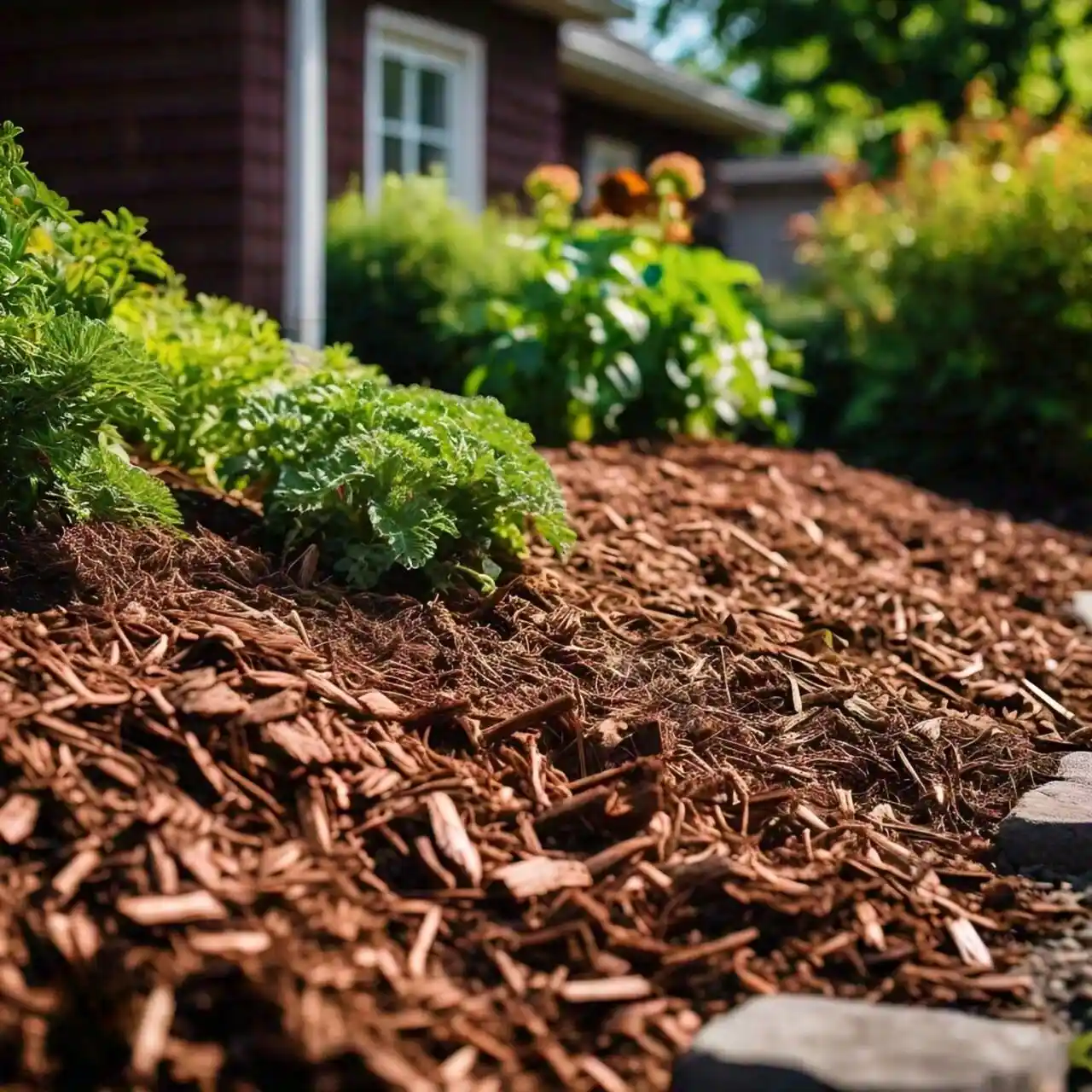
How to Safely Apply Roundup on Mulch
- Wear protective clothing, including long sleeves, pants, gloves, and a mask, to avoid direct contact with the herbicide.
- Apply Roundup on a calm day to prevent drift and ensure the product reaches the target weeds without affecting surrounding plants.
- Use a sprayer to apply Roundup evenly on the mulch, covering the weeds thoroughly. Avoid oversaturating the mulch, as excess moisture can promote weed growth.
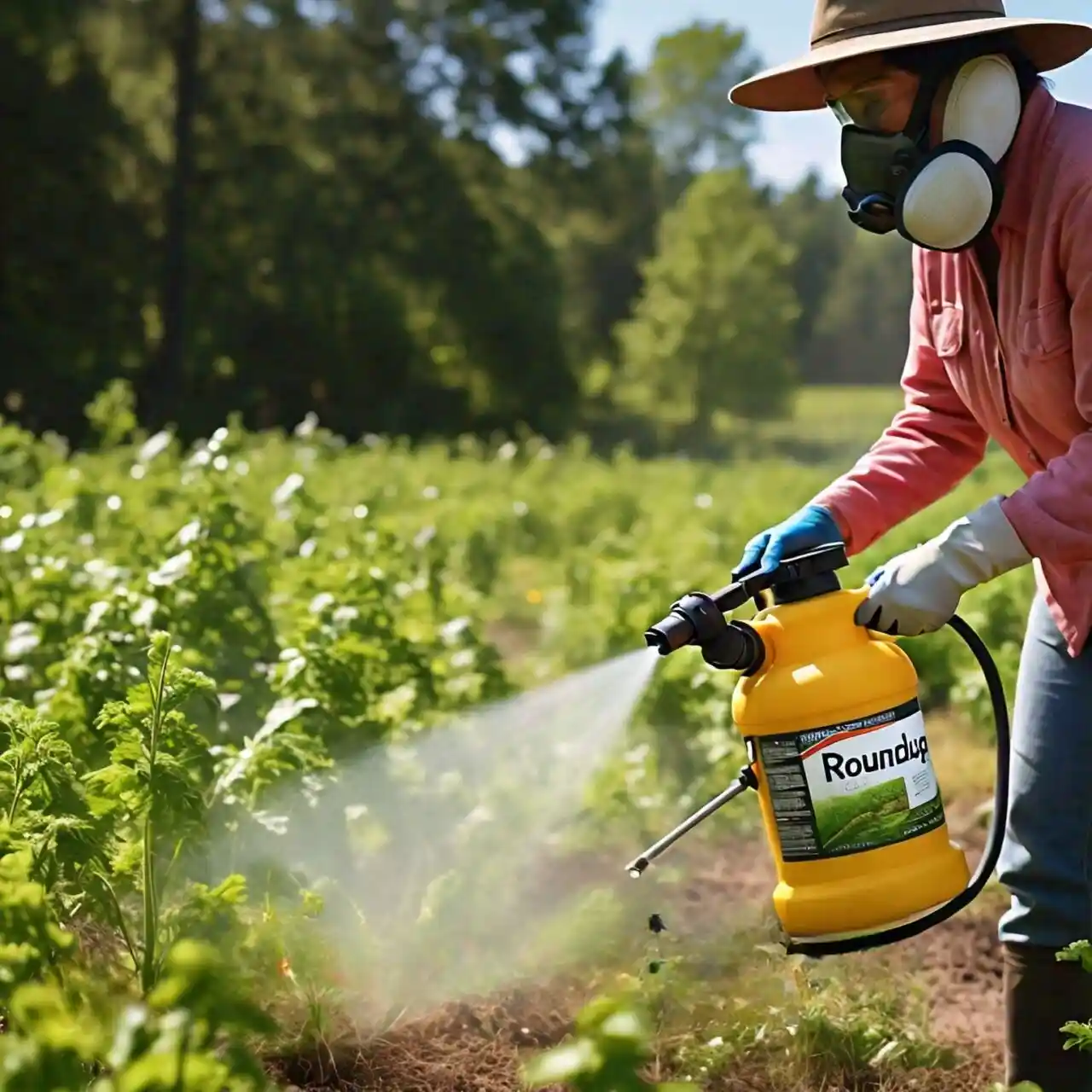
Precautions to Take When Using Roundup on Mulch
- Avoid using Roundup near water sources, such as ponds or streams, to prevent contamination. Choose a dry, sunny day to apply the herbicide, as rain can wash it off into nearby water bodies.
- Keep pets and children away from the treated area until the product has dried completely. Store Roundup is in a secure location that is out of reach of curious hands and paws.
- Dispose of empty Roundup containers properly, following local regulations for hazardous waste disposal. Do not reuse containers for other purposes to prevent accidental exposure.
How Long Does Roundup Take to Work on Mulch?
Roundup typically starts to work within a few hours of application, with visible wilting and browning of weeds occurring within 1-2 weeks. For best results, avoid watering the treated area for at least 24 hours to allow the herbicide to be absorbed by the plants.
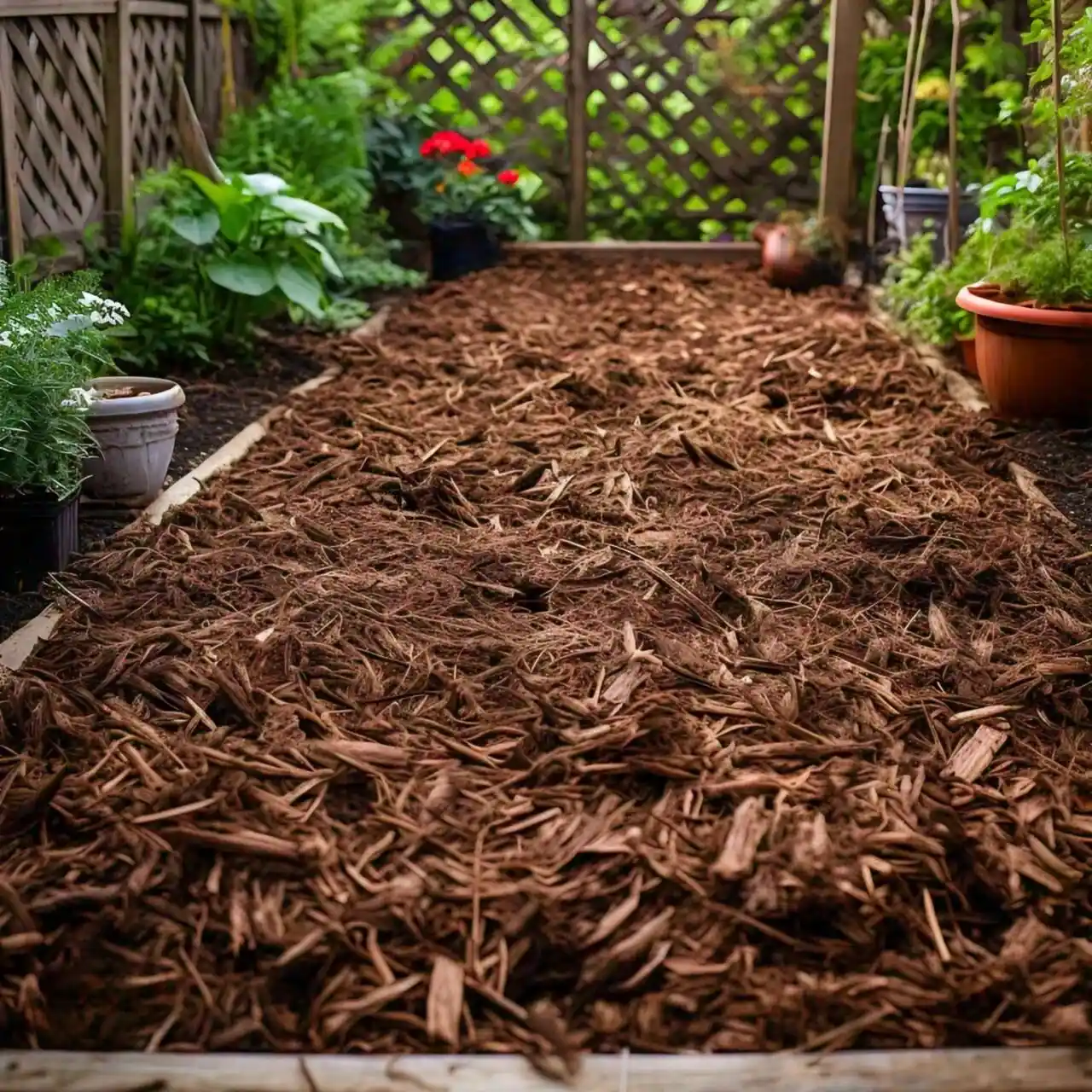
How long does Roundup stay toxic in the soil?
The persistence of Roundup (glyphosate) in soil is a complex issue with some conflicting information.
- Binding to soil particles: Generally, glyphosate attaches to soil particles, which reduces its ability to leach deeper into the ground and contaminate groundwater. This can be helpful.
- Degradation by microbes: Microorganisms in the soil can break down glyphosate over time. The half-life, the time it takes for half of the glyphosate to degrade, can vary widely depending on factors like soil type, moisture, and temperature. Studies suggest a range of 1 to 174 days [US National Pesticide Information Center], though some report residues lasting up to a year.
Key Points:
- Roundup might not be completely eradicated from the soil for several months to a year.
- Some residues might remain even after it’s no longer toxic to plants.
Further Considerations:
- Leaching potential: Although glyphosate adsorption minimizes leaching, under specific circumstances (soil type, heavy rain), it can still reach waterways.
- Impact on soil microbes: Studies have shown mixed results on the impact of glyphosate on soil microorganisms, some suggesting a disruption of the beneficial microbial balance.
The use of Roundup in soil has potential environmental drawbacks beyond immediate weed control. It’s advisable to explore alternative weed management methods whenever possible.
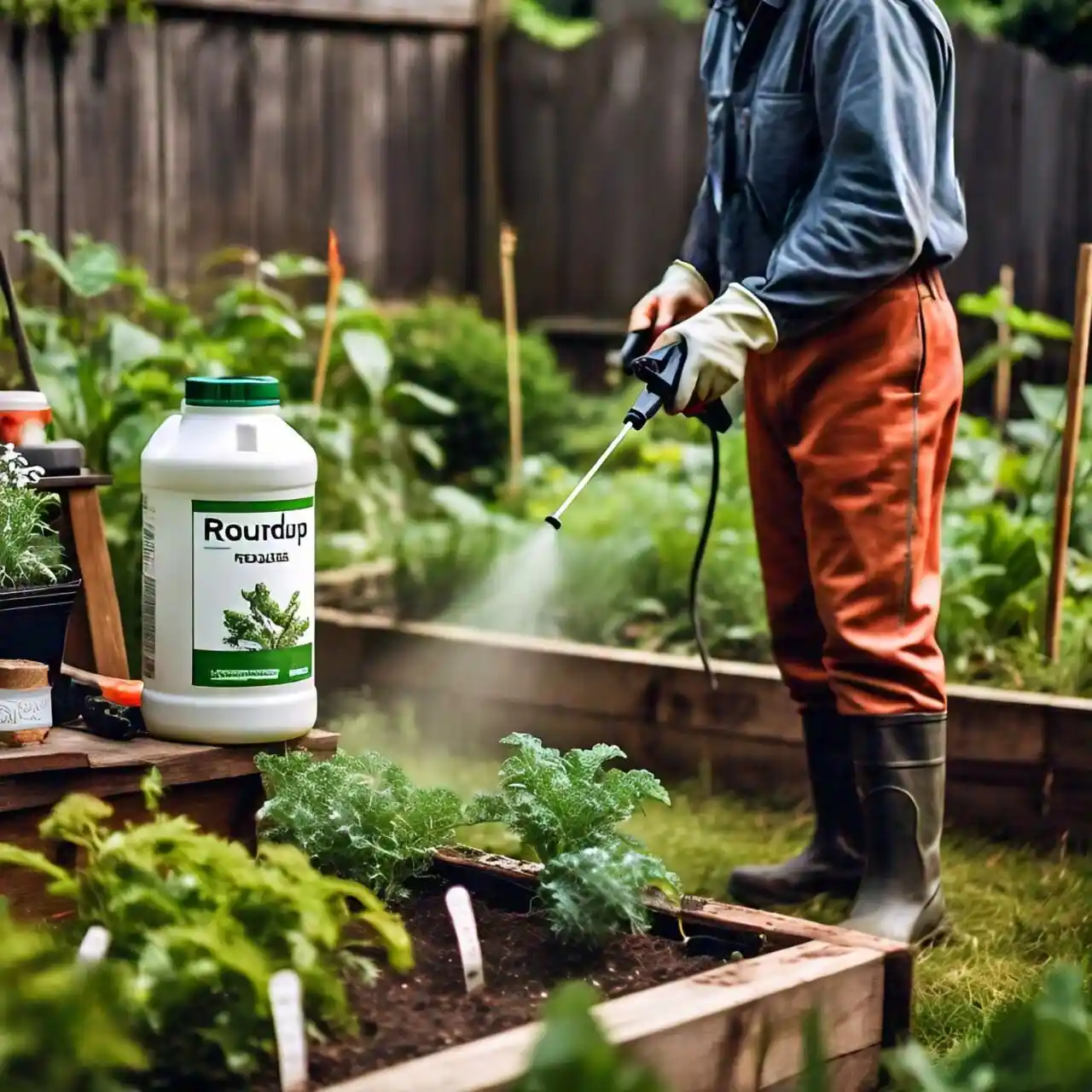
Can I Plant New Seeds or Plants in Mulch Treated with Roundup?
It is recommended to wait at least 7 days after applying Roundup before planting new seeds or plants in the treated area. This waiting period allows the herbicide to break down and minimize the risk of affecting your new vegetation.
Conclusion
Using Roundup on mulch can be an effective way to control weeds and maintain a healthy garden. By following the tips and precautions outlined in this article, you can safely apply this herbicide without harming your plants or the environment.
Remember to always read and follow the label instructions on the Roundup product for the best results.
FAQs
Can Roundup be used on all types of mulch?
Roundup can be used on various types of mulch, including wood chips, bark, and straw. However, it is essential to avoid contact with desirable plants to prevent damage.
Is Roundup safe for use around pets and children?
While Roundup is considered safe when used according to the label instructions, it is best to keep pets and children away from treated areas until the product has dried completely.
How long does Roundup stay active in the soil?
Roundup breaks down in the soil within a few weeks to a few months, depending on factors such as temperature, moisture, and microbial activity. Planting new vegetation after the waiting period is recommended.
Can I mix Roundup with other herbicides for better weed control?
Mixing Roundup with other herbicides is not recommended, as this can reduce the effectiveness of the product and may lead to unforeseen consequences. Stick to using Roundup as directed for optimal results.
What should I do if I accidentally spill Roundup on my skin or clothing?
If you accidentally come into contact with Roundup, immediately rinse the affected area with water and remove contaminated clothing. Seek medical attention if irritation persists or worsens.



